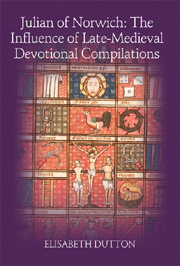Conclusion
Published online by Cambridge University Press: 12 September 2012
Summary
Quadruplex est modus faciendi librum. Aliquis enim scribit aliena, nihil addendo vel mutando; et iste mere dicitur scriptor. Aliquis scribit aliena addendo, sed non de suo, et iste compilator dicitur. Aliquis scribit et aliena et sua, sed aliena tamquam principalia, et sua tamquam annexa ad evidentiam; et iste dicitur commentator non auctor. Aliquis scribit et sua et aliena, sed sua tamquam principalia, aliena tamquam annexa ad confirmationem et debet dici auctor.
Bonaventure's scheme of authorship is the best known of the models which were first created to explain the relative roles of God and man in the creation of scripture. Divine authority for a text necessitated a corresponding diminution of the role of the human writer of that text, who might be seen more as a scribe recording the words of his auctor. It has long been recognized that for the medieval female writer, the validity of whose activity might be open to question, the claim of divine authority may prove vital – Margery Kempe, for example, emphasizes the processes by which she is divinely commanded to write her Book: ‘ower Lord … comawnded hyr and chargyd hir that sche schuld don wryten hyr felyngys & reuelacyons and the forme of her leuyng’. Women had no right to teach or preach, and insofar as writing might be an extension of these activities it was a sinful activity for women; but women could gain authority to write by resigning auctoritas to God and claiming to be merely the channel, the mere scriptor of His words and works.
- Type
- Chapter
- Information
- Julian of NorwichThe Influence of Late-Medieval Devotional Compilations, pp. 161 - 172Publisher: Boydell & BrewerPrint publication year: 2008



